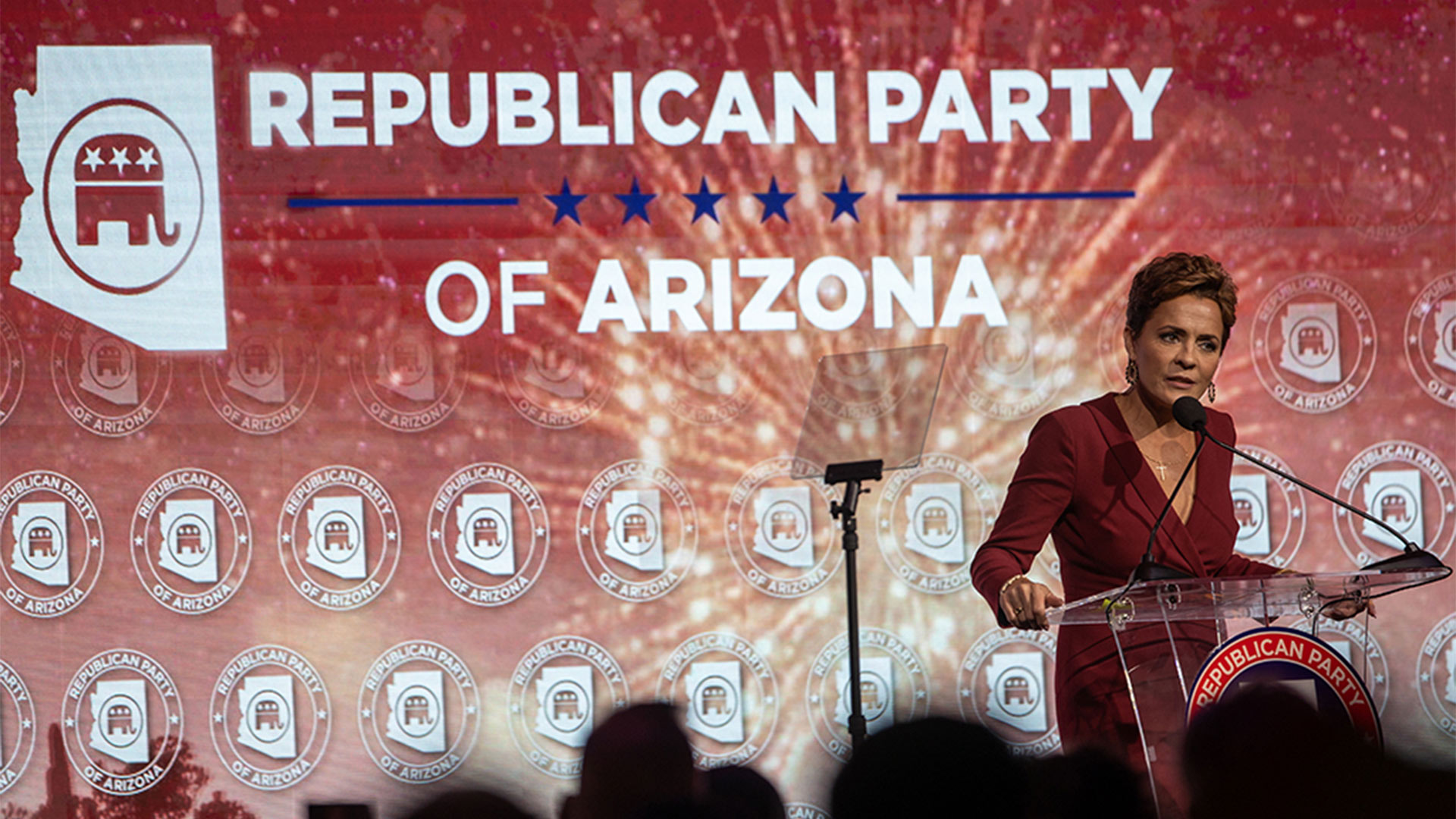 Kari Lake during the watch party for Arizona Republicans at the Scottsdale Resort at McCormick Ranch on Nov. 8, 2022.
Kari Lake during the watch party for Arizona Republicans at the Scottsdale Resort at McCormick Ranch on Nov. 8, 2022.
The Arizona Supreme Court has declined to hear most of Republican Kari Lake’s appeal in a challenge of her defeat in the governor’s race but revived a claim that was dismissed by a trial court.
In an order Wednesday, the state’s highest court said a lower court had erroneously dismissed Lake’s claim challenging the application of signature verification procedures on early ballots in Maricopa County. The court sent the claim back to a trial court to consider.
Lake, who lost to Democrat Katie Hobbs by just over 17,000 votes, was among the most vocal 2022 Republican candidates promoting former President Donald Trump’s election lies, which she made the centerpiece of her campaign. While most other election deniers around the country conceded after losing their races in November, Lake did not.
In her challenge, the former TV anchor focused on problems with ballot printers at some polling places in Maricopa County, home to more than 60% of the state’s voters.
The defective printers produced ballots that were too light to be read by the on-site tabulators at polling places. Lines backed up in some areas amid the confusion. Lake alleged ballot printer problems were the result of intentional misconduct.
County officials say everyone had a chance to vote and all ballots were counted because those affected by the printers were taken to more sophisticated counters at election headquarters.
In mid-February, the Arizona Court of Appeal rejected Lake’s assertions, concluding she presented no evidence that voters whose ballots were unreadable by tabulators at polling places were not able to vote.
The appeals court noted that even a witness called to testify on Lake’s behalf confirmed ballots that couldn’t initially be read at polling places may ultimately have been counted. And while a pollster testified that the polling place problems disenfranchised enough voters to change the election’s outcome, the appeals court said his conclusion was baseless.
Lake’s attorneys also said the chain of custody for ballots was broken at an off-site facility where a contractor scans mail-in ballots to prepare them for processing. The lawyers asserted that workers put their own mail-in ballots into the pile rather than returning them through normal channels, and that paperwork documenting ballot transfers was missing. The county disputes the claims.
Hobbs’ attorneys have said Lake was trying to sow distrust in Arizona’s election results and offered no proof to back up her allegations.
Lake faced extremely long odds in her challenge, which required proving misconduct specifically intended to deny her victory and that it resulted in the wrong woman being declared the winner.
Hobbs took office as governor on Jan. 2.

By submitting your comments, you hereby give AZPM the right to post your comments and potentially use them in any other form of media operated by this institution.